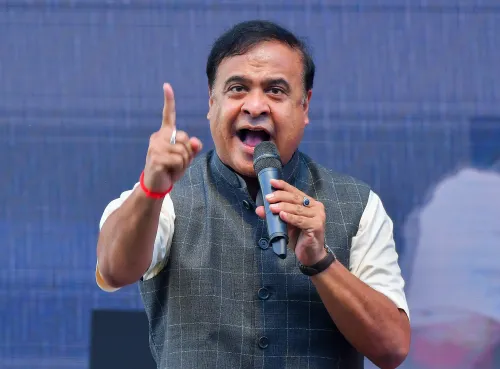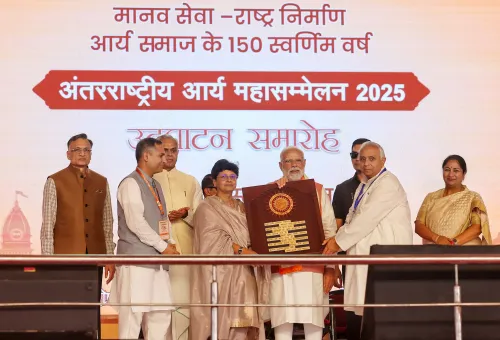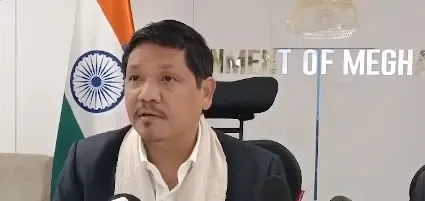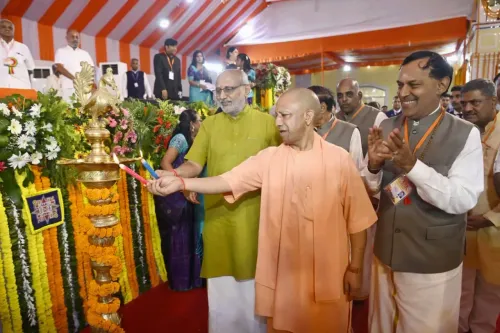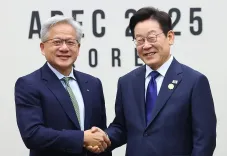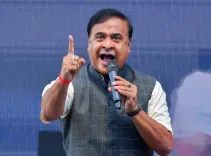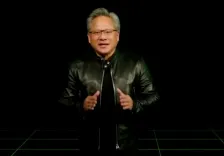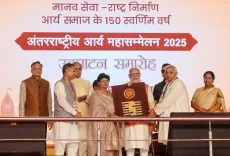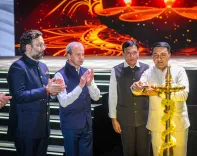BJP Dominates Gujarat Local Body Elections, PM Modi Declares It a ‘Triumph for Progress’
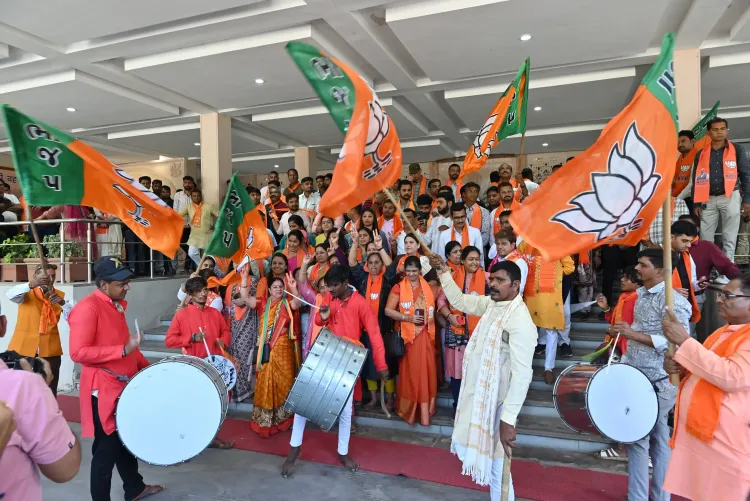
Synopsis
Key Takeaways
- The BJP secured 60 municipalities out of 68.
- PM Modi hailed the victory as a sign of development.
- Gujarat BJP president credited leadership for success.
- Congress acknowledges its poor performance.
- The SP made unexpected gains by winning two municipalities.
Gandhinagar, Feb 18 (NationPress) The ruling BJP has once again consolidated its authority in Gujarat by dominating the local body elections and achieving a significant victory in the Junagadh Municipal Corporation (JMC).
The party has successfully claimed 60 out of 68 municipalities and all three taluka panchayats where voting occurred on February 16.
Prime Minister Narendra Modi conveyed his appreciation to the people of Gujarat for their steadfast support for the party.
PM Modi stated on the social media platform X: “Gujarat's bond with BJP is not just strong; it is continually becoming more robust! I extend my heartfelt thanks to the people of Gujarat for their unwavering support and blessings to the BJP in the municipal elections held in the state. This marks yet another significant victory in the realm of development. This will allow our dedicated workers to serve the populace with renewed vigor. I congratulate all the BJP workers whose relentless efforts have culminated in this remarkable triumph.”
After the results were announced, Gujarat BJP president C R Paatil credited the party’s success to PM Modi’s leadership, Union Home Minister Amit Shah’s strategic direction, and Chief Minister Bhupendra Patel’s governance.
“We conceded two municipalities to the SP, while one was won by the Congress. Nevertheless, compared to 2018, the BJP has increased its count by 14 municipalities. While we hold a clear majority in 60 municipalities, we are optimistic about forming the board in five others with independent support,” Paatil remarked.
Gujarat Congress chief Shaktisinh Gohil acknowledged the party’s lackluster performance but noted an improvement in its vote share in several regions, including Junagadh.
“I believe the results are not overly disappointing. Yet, we must exert more effort to strengthen our organization,” he confessed, indicating a possible restructuring of the party’s state unit.
The BJP’s achievement was particularly significant as it managed to take control of over a dozen municipalities from the Congress, further entrenching its electoral dominance in the state.
The Congress, which once held sway in various regions, only managed to win a single municipality—Salaya in Devbhumi Dwarka district. After winning 14 municipalities in the 2018 elections, the party faced a substantial decline.
Meanwhile, the Samajwadi Party (SP) made surprising gains by winning two municipalities—Kutiyana and Ranavav in Porbandar district. The victory was spearheaded by the SP’s sole Gujarat MLA, Kandhal Jadeja, who transitioned from the Nationalist Congress Party (NCP) to the SP before the 2022 Assembly elections.
Out of the total 60 seats in 15 wards of the Junagadh Municipal Corporation (JMC), the BJP won 48 seats, while the Congress secured 11. An independent candidate also emerged victorious.
This represented a significant win for the BJP, which maintained power in Junagadh with a substantial majority. Out of the 68 municipalities contested, the BJP secured 60, while the Congress managed just one. The SP won two, and five municipalities—Mangrol, Dakor, Anklav, Chhotaudepur, and Bavla—did not yield a clear winner.
This was the first local body election conducted after the Gujarat government enacted a 27 percent reservation for Other Backward Classes (OBCs) in panchayats, municipalities, and civic corporations in 2023. The effect of the quota on voter behavior and party performances remains a subject of analysis, but the BJP’s sweeping victory suggests that its core voter base remained intact despite adjustments in seat allocations.
While the BJP celebrated its overwhelming victory, the Congress struggled to maintain its position. Beyond its sole win in the Salaya municipality, the party could not make significant inroads into the BJP’s electoral stronghold.
In Salaya, the Congress claimed 15 out of 28 seats, while the Aam Aadmi Party (AAP) closely followed with 13 seats in this Muslim-majority urban center.
According to the State Election Commission (SEC), a total of 213 seats were declared uncontested, indicating that BJP candidates were elected without opposition after other contenders withdrew.
The BJP viewed victories in these uncontested seats as evidence of its extensive support, asserting that it is poised to gain control of municipalities such as Bhachau, Jafrabad, Bantva, and Halol due to the high number of uncontested seats in those areas.

